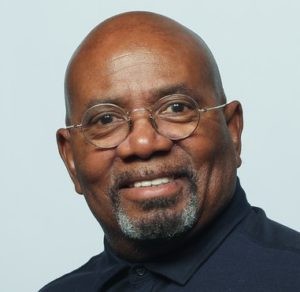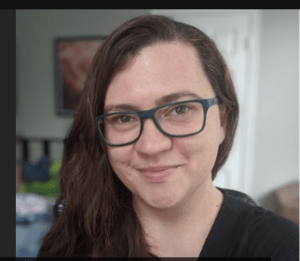Churches unified in prophetic, compassionate action are needed to bring healing to the nation’s political, religious and racial wounds, according to participants in a June 23 New Baptist Covenant gathering.
The virtual event, held in advance of this week’s American Baptist Churches in the USA Biannual Mission Summit, was hosted by NBC co-Executive Director Aidsand Wright-Riggins.
Speakers said it is crucial that the wider Baptist family achieve unity if the rest of the world is to witness the power of Christian ministry.

Aidsand Wright-Riggins
Jesus’ prayer in John 17 specifically calls for that unity, Wright-Riggins said. “To me, it is important that as Baptists we find a way to turn toward each other rather than on each other, particularly when we look at the issues of race and gender and sexuality and theology. Those have become in so many ways dividing lines as opposed to opportunities to explore and wonder and to be curious.”
The discussion around action also ventured into the recently enacted Juneteenth federal holiday as an example of where more work is needed. Wright-Riggins noted that the same U.S. Senate body that voted to approve the commemoration also failed to create an inquiry into the Jan. 6 insurrection at the U.S. Capitol and has taken no action against numerous voter suppression efforts around the country.
“We need a Juneteenth, but we have had a celebration without reparations, a celebration without transformation,” he said. “So, one of the things we want to help churches do is learn how to use the power in their congregations to work with other congregations to bring systemic change by working on issues that are important in their communities.”
To do that, Wright-Riggins recommended churches establish faith-and-action teams to address the needs of their neighbors. Such teams once were a widespread practice among American Baptists but “many of those teams have gone by the wayside,” he lamented.

Nancy Willbanks
However, the practice is alive and well at First Baptist Church in Littleton, Mass., Pastor Nancy Willbanks explained.The congregation operates a food ministry that includes a neighborhood supper program and during the pandemic provided cooked meals to those who needed them.
The idea of Baptist unified action was a powerful subject for many of the participants, including Marie Onwubauriri, who said she is drawn to the American Baptist movement because of its ongoing work in connecting Baptists around issues of race.
“I am a Baptist minister. To engage with other Baptists is important on that front because our witness in some ways ties us together,” said Onwubauriri, who works on the national staff of ABC-USA in King of Prussia, Pa.

Marie Onwubuariri
But it’s also about a larger impact, she added. “My own passion is about how we can engage in our own communities, beyond even ABC and Baptists. It’s the community piece that draws me.”

Sarah Strosahl-Kagi
Sarah Strosahl-Kagi said Baptist diversity is important, but it isn’t enough to address society’s pressing needs. “We don’t leverage our diversity. We are still in our bubbles and our silos. American Baptists, and Baptists in general, could show unity in diversity,” said Strosahl-Kagi, pastor at Royersford Baptist Church in Royersford, Pa.
Wright-Riggins said New Baptist Covenant also has learned that relationships are the foundation of effective action. That lesson emerged from the organization’s Covenants of Action program, which pairs Baptist churches of different racial and ethnic backgrounds to effect community change.
Practical experience has shown that congregations need to get to know each other better before venturing into joint ministry, he noted. “Now we are focusing on covenants of awareness and relationship before action.”
The group also discussed how, for some pastors, merely discussing unity and faith-driven social action can be professionally detrimental.
Wright-Riggins said ministers have to be discerning in taking the pulse of their congregations and in identifying who their allies might be. “There is no such thing as being a prophetic pastor without there being a prophetic church.”
Pastors must have “a significant number” or “at least a core group that understands” the difficulties and is willing to take the heat for, or with, the minister, he advised. “Otherwise, the pastor is only lining himself or herself up for crucifixion or martyrdom.”
And pastors must “pay the rent” before they can expect to push parishioners into new spaces, Wright-Riggins said. “What is the rent? It’s preaching, teaching, holding hands, driving the church bus. Leaders need to learn that they cannot use their influence until they actually have it.”


